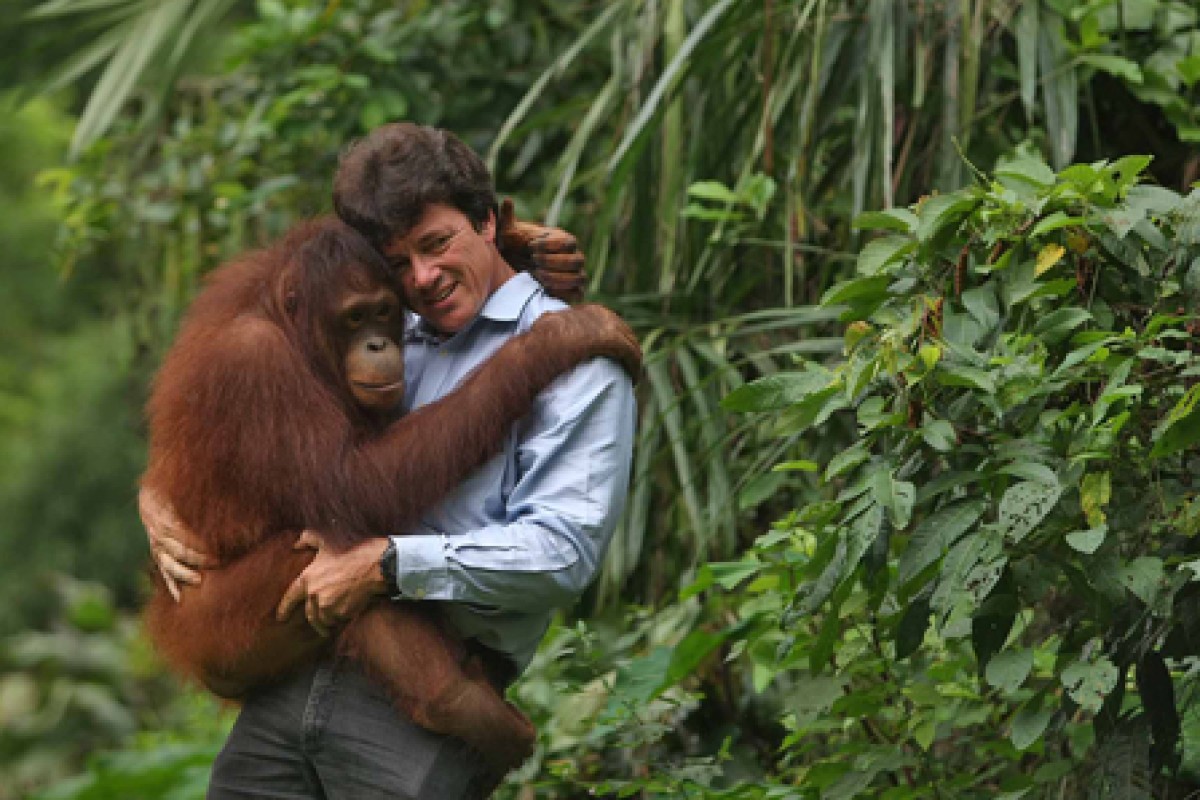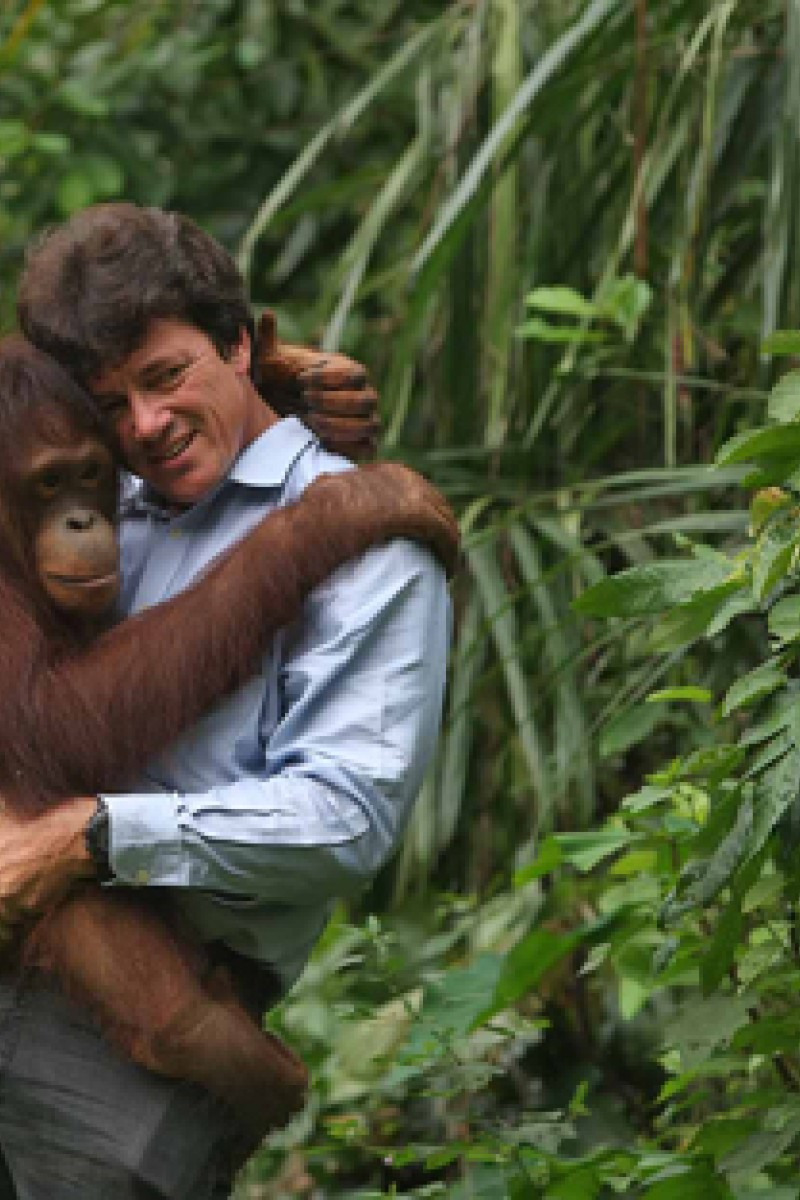 Willie Smits' orang-utan friends remember him well.
Willie Smits' orang-utan friends remember him well.Smits has released more than 1,000 of the red-haired apes back into the wild in east and central Kalimantan on Borneo as well as in Sulawesi province over the past 20 years.
And every time he revisits those forests, the animals emerge from the thick canopies to give him a hug and even show him their offspring.
He was in Hong Kong recently to talk to students at Island School.
Smits runs several orang-utan rehabilitation centres in Indonesia, but experience taught him this was not enough to safeguard orang-utan populations and their rights permanently.
For that reason, he now oversees a bigger project which includes a sugar palm factory, community empowerment programme and forest conservation.
Problems began for the orang-utans with the growing demand for biofuel. The oil palm was used to produce what was thought to be a good, green solution to reducing pollution and global warming. Instead, it proved to be an ecological disaster.
Industrialists tore down acres of forest across Indonesia to make way for oil palm plantations, depriving orang-utans of their home. Worse still, they paid poor farmers and hungry-eyed poachers to capture or kill those animals who made unwelcome forays into the plantations for food. In the past 10 years, the primates' numbers have fallen by 50 per cent, to perhaps as few as 13,000 living in the wild, scientists estimate.
"The silent forest syndrome is evident in Indonesia," Smits said. "There are no more voices of birds and animals. These intelligent animals are being killed for food, traded as pets or simply failing to thrive as their forest home is degraded. And the culprit is the oil palm industry, which indirectly funds the US$6 billion wildlife smuggling trade."
Smits believes the first step in rebuilding orang-utan populations is to help local people find economic alternatives to harvesting forests or killing orang-utans to survive.
In 2007, his Masarang Foundation opened a sugar-palm factory in North Sulawesi, based on nature's philosophy. "Nature does not know waste," Smits says. "In industry, you can do the same."
Sugar palm trees need little to thrive - only rain, sunlight and carbon dioxide - but produce premium organic sugar, food, ethanol and even biodegradable plastics which all return cash and power to the community.
"Sugar palms are 20 times more productive than oil palms," Smits says. "They grow on degraded soil [and] do not take away good land from farmers."
Smits says some 3,000 jobs have been created on 2,023 hectares of sugar palm plantations in five years. He hopes by paying his workers three times more than they can get from oil palm factories he can successfully out-compete them.
His project has also helped reintroduce 1,300 tree species and 170 bird species to a devastated landscape. The clouded leopard - the forest's most noted predator - is back, too.
Meanwhile, Smits initiated an online platform called DeforestACTION in July. He mobilised 10 million children across the world - who he calls his "biggest informers" and "supercomputers" - to check and report every week where a piece of forest is disappearing using a satellite mapping service.
"We have so much data, but not enough computers to process these satellite images and analyse them," Smits says.
"But now, they [the oil palm industry and illegal loggers] cannot cheat anymore."
Smits hopes Hong Kong teenagers can discourage the use of products containing palm oil and the illegal wildlife trade to help protect Indonesia's forests and biodiversity.
"If they [orang-utans] can survive, everything else can," Smits says. "They are the indicator of forest health."
